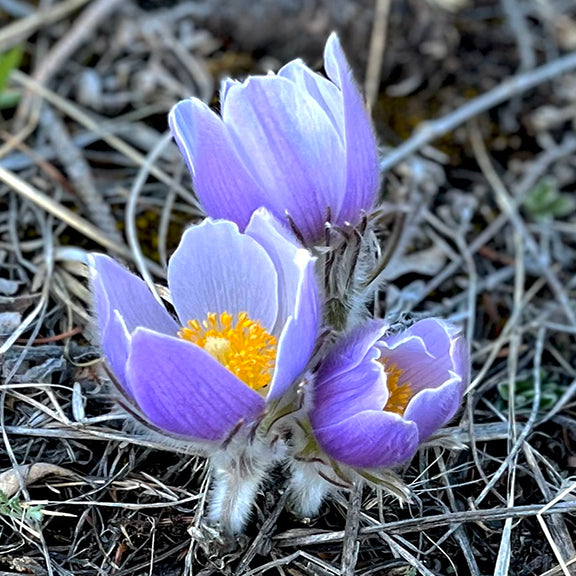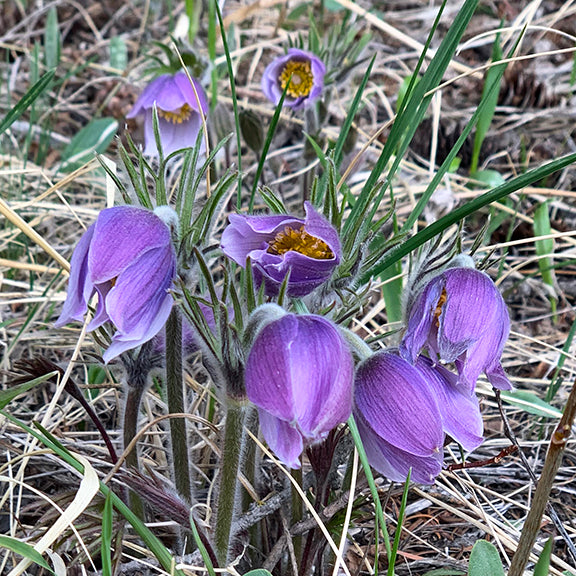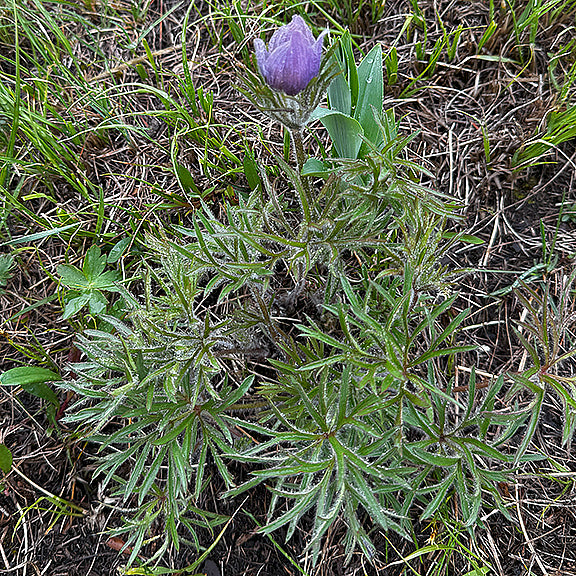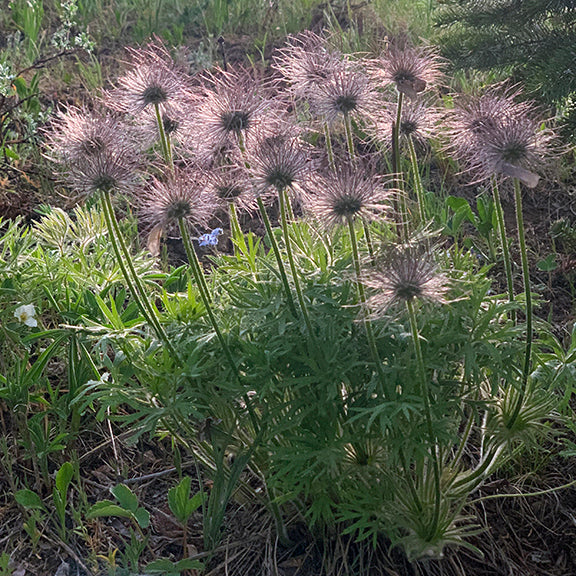Wild About Flowers
Pulsatilla nuttalliana - Prairie Crocus
Pulsatilla nuttalliana - Prairie Crocus
Couldn't load pickup availability
Prairie Crocus is one of the earliest signs of spring, with delicate, mildly sweet-scented, lavender to pale purple, cup-shaped flowers emerging before its finely divided, fuzzy green leaves. Blooming just as winter fades, it provides an essential early nectar source for native bees and butterflies, while its soft, feathery seed heads add visual interest well into summer. Drought-tolerant and low-maintenance, Prairie Crocus is an excellent choice for self-sustaining landscapes, rock gardens, sunny exposed gardens, and naturalized plantings, bringing resilience and beauty to both urban and rural spaces.
As one of the earliest blooming wildflowers, Prairie Crocus thrives in full sun and undisturbed grasslands, commonly found in prairies, open slopes, and dry, open woodlands. Its toxic sap and hairy foliage make it unpalatable to deer and other herbivores, ensuring high grazing resistance.
Bloom Times & Plant Sizes
Bloom Times & Plant Sizes
Important Information - The "Bloom Period" is an indicator of the time period within which the wildflowers will bloom and does not describe the time period that a single plant will bloom. The "Sizes" listed are intended to be a general guideline to consult during plant selection. - Plant growth and bloom times will vary depending on geographical location & individual site conditions.
Edible & Medicinal Info Disclaimer
Edible & Medicinal Info Disclaimer
The Edible & Medicinal information on this site is for informational purposes only and should not be acted on without thorough research and professional guidance. We are not responsible for any adverse effects resulting from the use of or misidentification of plants.
Share




Plant Specifics
Seeds Per Pack
Seeds Per Package: 25
Light Conditions
- Sun
- Part Shade
Soil Conditions
- Dry
- Sandy
- Gravelly
- Well Drained
- Loam
- Clay
Height
- Under 12"
- 12" - 24"
Width
- Under 12"
Bloom Colour
- Purple
Month of Bloom
- April
- May
Vigorousness
- Slow
- Moderate
Deer Resistance
- High
Features
- Butterflies
- Bees
- Fragrant
- Attractive Seed Heads
- Urban Spaces
- Rural Spaces
- Medicinal Properties
- Toxic or Posionous Parts
Chinook Exposure
- Fully Exposed
Distribution Info
Native to BC, AB, SK, MB, and ON, extending into the northern U.S.. Found in prairies, grasslands, open woodlands, and foothills, thriving in well-drained, sandy, or loamy soils.
Traditional Edible & Medicinal Info
Indigenous groups used Pulsatilla nuttalliana primarily for medicinal purposes, often as infusions or poultices to treat pain, swelling, and respiratory ailments.
⚠️ This species is toxic, especially when fresh, and can cause skin irritation and digestive issues if ingested.




